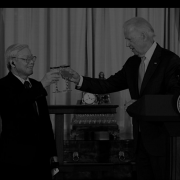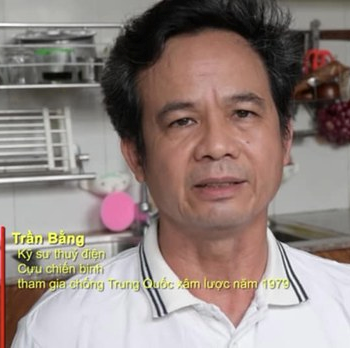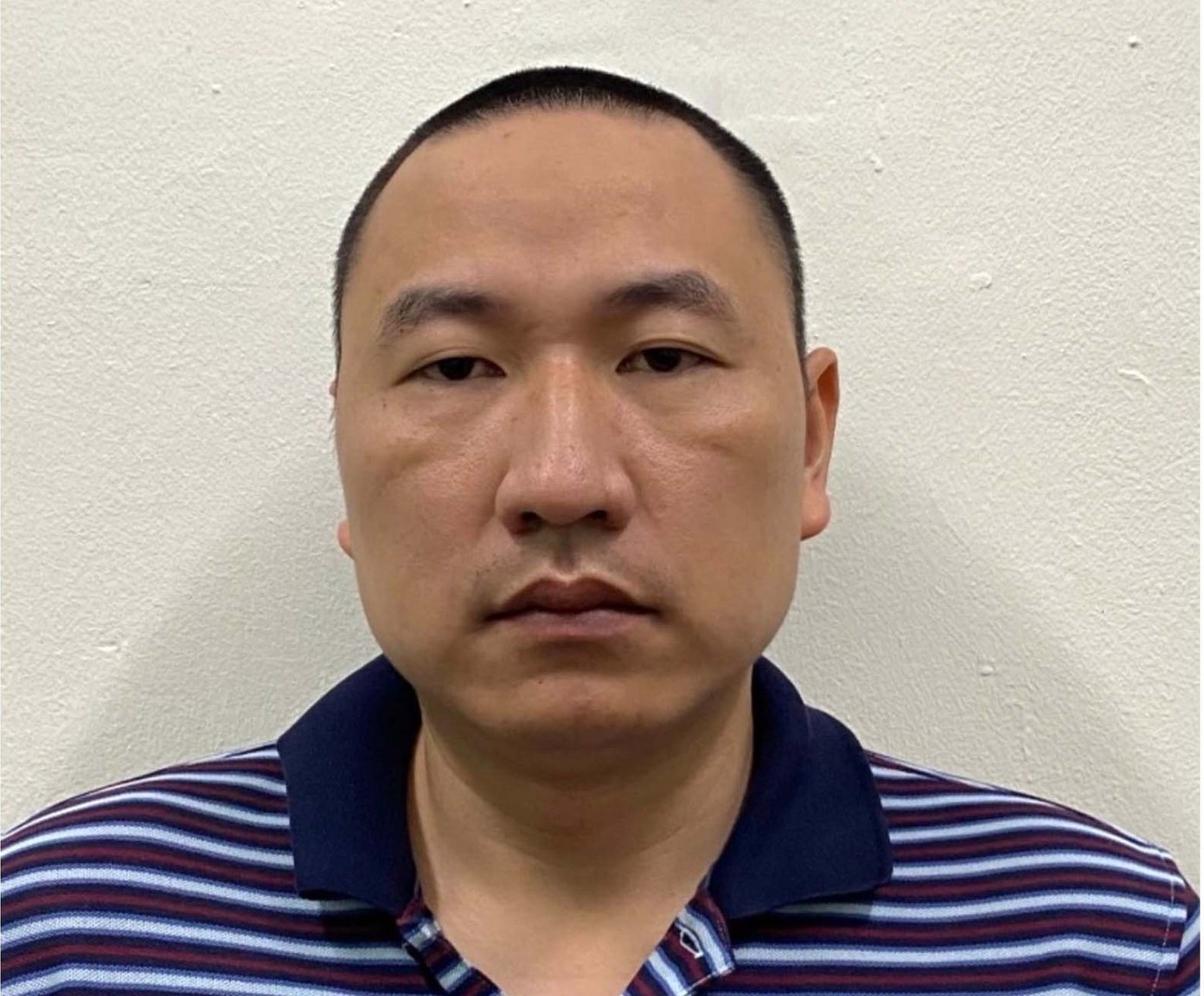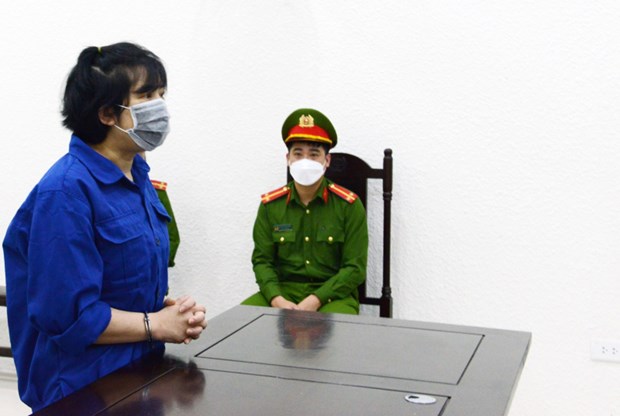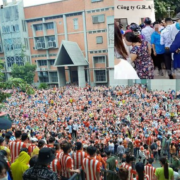Vietnam Free Expression Newsletter No. 19/2024 – Week of May 6-12
Greetings from Project88. We bring you news, analysis, and actions regarding human rights and civil society in Vietnam during the week of May 6-12.
-
One former administrator of the “Patriotic Diary” Facebook page, Phan Tat Thanh, was sentenced to eight years in prison this week. Another, Nguyen Van Dung (Dung Aduku), is presumed dead under unknown circumstances.
-
Vietnam has asked the US Commerce Department to upgrade its status to a market economy, despite opposition from industry groups and human rights organizations alike. Vietnam recently arrested it’s own top labor reformer, Nguyen Van Binh, further complicating the country’s narrative that it will protect worker rights. Read our report on his arrest here.
HUMAN RIGHTS & CIVIL SOCIETY
Political Prisoners
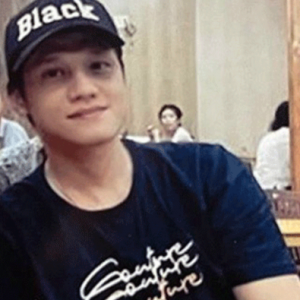
Phan Tat Thanh
On the trial and death of former administrators of the “Patriotic Diary”
Phan Tat Thanh, a former administrator for the Facebook page “Nhật Ký Yêu Nước” [Patriotic Diary], was sentenced by an Ho Chi Minh City (HCMC) court to eight years in prison on charges of spreading “anti-state propaganda” under Article 117. In an unusual development, the court allowed Thanh’s parents to attend the trial, and compelled his older brother Phan Tat Cong and a younger brother to also be there because they “have legal and financial liabilities” for Thanh. However, requests by the German and U.S. embassies to attend the trial were denied.
Phan Tat Chi, Thanh’s father, told Project88 that his son’s lawyers – Tran Minh Dung and Nguyen Minh Canh – argued in court that their client did not write any of the articles he was accused of writing. They said further that he was only responsible for setting up the page, and that the articles were posted by others. In fact, even after Thanh was arrested in July of last year, articles continued to be posted to the page, which has been renamed “Van Toan”. Nonetheless, prosecutors alleged that Thanh had posted seven articles with “serious anti-government content.” It’s not known if these posts were actually exhibited at trial as evidence.
An exasperated Phan Tat Chi said that although the Procuracy suggested a maximum sentence of between five and seven years, the court instead gave his son an eight-year sentence. In his closing statement, Thanh resolutely maintained his innocence. According to Phan Tat Chi, Thanh was in the middle of telling the court that his confessions were forcibly coerced when he was cut off by the chief judge, who said: “This is not a forum for the defendant to spew nonsense [nói lung tung].”
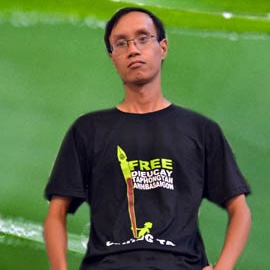
Nguyen Van Dung (Dung Aduku), Photo source: Dan Lam Bao
A colleague of Phan Tat Thanh, Nguyen Van Dung (aka Dung Aduku), is presumed dead under unknown circumstances. Dung Aduku was one of the first members of the No-U group which participated in many demonstrations against Chinese aggression in Southeast Asian waters in the early 2010s, as well as subsequent protests on various issues such as the Formosa environmental disaster. He and Phan Tat Thanh were former administrators of the Facebook page Patriotic Diary, which at one point had nearly 1 million followers. In 2013, Dung was sentenced to three years in prison for what was believed by his friends and associates to be a set up by the police. After his release, Dung continued his activism, although not as extensively as before, especially after the birth of his son in 2018. When Thanh was arrested last year, Dung began “moving from place to place to try to evade capture,” according to his friends. More details surrounding Dung Aduku’s alleged death can be found in the special section at the end of the newsletter.
Other Political Prisoner Updates
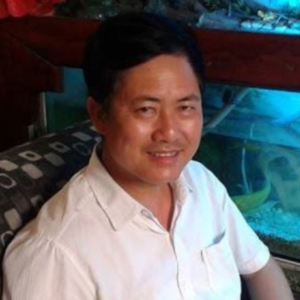
Luu Van Vinh
In other news, Le Thi Thap, the wife of Luu Van Vinh, and his youngest daughter, traveled to Gia Trung Prison to visit him from April 30-May 1. Vinh reported that after months of petitioning, he and a fellow inmate were finally given a general health checkup in April. He said his test results were generally good except for signs of calcification in his vertebrae. Thap told Project88 that due to the long distance between HCMC and Gia Lai Province – roughly 500 km apart –– and the fact that they are only allowed one family visit per month, she has has to arrange to visit him on the last day of the month so that she can go back the next day to see him again. The practice of jailing a political prisoner far away from home is one way the state puts additional hardship on the families of prisoners. Luu Van Vinh was arrested in 2016 and sentenced to 15 years in prison for “abusing democratic freedoms” under Article 331.
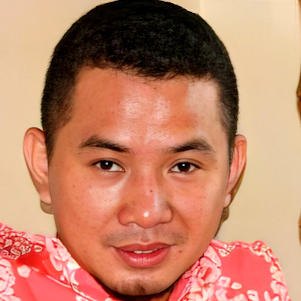
Bui Tuan Lam
In another example, noodle seller Bui Tuan Lam, aka “Onion Bae,” celebrated his second birthday in prison without the presence of his wife, Le Thi Lam, and his three daughters, because they could not travel from their home in Danang City to Xuan Loc Prison in Dong Nai Province (900 km away) to see him. Lam was arrested in September 2022 and sentenced to five years and a half for disseminating “anti-state propaganda” under Article 117.
VIETNAM AND THE WORLD
Arrest of Nguyen Van Binh

Leading government labor reformer Nguyen Van Binh
Vietnam this week made its case to upgrade its economic status with the US to a market economy; in opposition to the move were several trade and manufacturing groups– in industries ranging from honey to steel production, as well as labor and human rights organizations. While Hanoi pledged it would protect labor rights, the arrest of its key labor reformer– Nguyen Van Binh– indicates otherwise. Read our full report here. The Commerce Department decision is expected by the end of July.
For years, the United States has argued that deepening ties with Vietnam will help to promote human rights in the country and advance American interests in Southeast Asia. The Biden administration has sought to increase American access to Vietnam as a market and to bolster Vietnam as a bulwark against China’s influence in the region. According to United States Deputy Secretary of State Kurt Campbell, the architect of Biden’s Asia strategy: “Even though we have different kinds of government, different overall values, I believe, fundamentally, the ability to work closely with Vietnam will be decisive for us going forward.”
The US government has continued to perpetuate the belief that, by building trust between the Vietnamese government and US government, and by working towards mutual goals, Vietnam will make progress on human rights. The arrest of Nguyen Van Binh, the director general of the Legal Affairs Department at Vietnam’s Ministry of Labor, Invalids and Social Affairs (MOLISA), puts to rest this wishful thinking and provides a test to the Biden administration to prove how steadfast its commitment to human rights truly is.
Binh was arrested under Article 337 of the Criminal Code by the Hanoi Security Investigation Agency (Cơ quan an ninh diều tra – Công an TP Hà Nội). Article 337 criminalizes the “deliberate disclosure of classified information; appropriation, trading, [and] destruction of classified documents.”
Binh is a trade unionist who has agitated within the government to expand protections for workers. He worked his way up through the country’s only trade union, the Vietnam General Confederation of Labor, before spending five years at the Hanoi office of the International Labor Organization (ILO), and then becoming a policymaker in MOLISA’s legal affairs department. At the time of his arrest, Binh was leading efforts to ratify ILO Convention 87, which, if passed, would guarantee workers the right to form independent trade unions without prior authorization. Under the EU-Vietnam Free Trade Agreement, Vietnam agreed to ratify the convention in 2023, although the government has delayed the process. The EU has not imposed any consequences for this delay.
Binh’s arrest is the first of a government reformer in recent years and comes amid a new wave of repression in Vietnam. Last year, senior government leaders ordered a crackdown on human rights due to concerns about foreign interference on legislative reform and policymaking activities. Binh’s extensive engagement with foreign governments and international organizations on labor reform was at odds with the hardening stance of the country’s leaders.
UPR and More
Vietnam underwent its UPR review this week. The country was recommended to address a variety of human rights issues, including ratifying ILO Convention 87, abolishing the death penalty, repealing laws repressing political dissidence, and protecting civil society actors from reprisals for engaging with UN mechanisms. Vietnam reported it has a “consistent policy for protecting and promoting human rights” and that it had “worked steadfastly to implement recommendations made during the country’s last universal periodic review in 2019.”
You can view the full draft UPR Working Group report on the session here. Vietnam has until the fall to submit its Addendum, in which it must make a written response to each recommendation made during the UPR process.
In other news and analysis,
Vietnam irks EU by delaying meeting ahead of possible Putin visit. Reuters; 2024-05-09.
Vietnam pledges more energy security as chip race heats up. Asia Nikkei; 2024-05-11.
Vietnam’s political turmoil reveals a turn towards China–and away from the West. Chatham House; 2024-05-09.
DEATH OF NGUYEN VAN DUNG (DUNG ADUKU)
Project88 has not been able to independently verify all of the details in the case; our investigation is ongoing.
***
On April 22, 2024, while having dinner with two friends in Hanoi, Nguyen Van Dung was taken by Public Security to Phu Tho (near Hanoi) to be interrogated. Thach Vu, who was dining with him, said four men came to their table as they were finishing dinner and took Dung away in a red car. The men promised they would not charge him. Before leaving, Dung gave Thach the key to his bike.
For the next several days, Thach and another friend repeatedly contacted Dung’s family to find out if he’d been released. When they finally heard that he was home, they went to his house the next morning, on April 27. Dung’s mother met with them and told them he had left the house earlier that morning after asking her to buy him some rice crepes; when she came back home, he was gone.
According to her, Dung was held by Phu Tho Police from April 22 to April 25; on the 25th, she received a call from them to come pick him up. At the station, they told her they were keeping two cell phones and 3 million dong ($120) in cash that belonged to him. She said Dung slept all through the day after his release and later told her that he “was not beat up” while in custody. However, he said that the interrogators told him to stop being involved with the Patriotic Diary.

The motorbike and sandals believed to be Dung’s. Project88 has verified with a private source and believes the photo is authentic. Photo credit: Saigon Nho News
Dung left home on the morning of April 27 on a motorbike without any money or papers. The bike was later found on Van Lang Bridge, with a pair of sandals believed to be Dung’s beside the motorbike. On May 8, the day of Phan Tat Thanh’s trial, a man’s body was found washed up on the shore of the Red River near Chau Son Village. Police have not identified the body as Dung’s since results from DNA testing would not be available for 15 days. However, his family believes that “the severely bloated and unidentifiable corpse” is Dung’s, and they held a service for him by the riverside.
Before leaving the house for the last time, Dung allegedly left his mother a note which said: “I am sorry, Mother. I am sorry, Son.” It is still a mystery what caused Dung Aduku’s death. Phu Tho authorities have not issued a statement and no state media have mentioned Dung since his disappearance. Project88 will report more details as they are available.
For more information on Dung’s history of activism, see the “Political Prisoners” section above.
© 2024 The 88 Project


